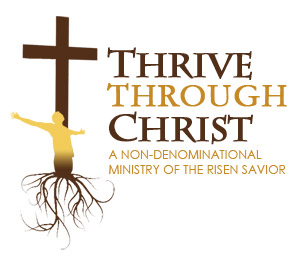
”16 Do you not know that you are the temple of God and that the Spirit of God dwells in you? 17 If anyone defiles the temple of God, God will destroy him. For the temple of God is holy, which temple you are.”
1 Corinthians 3:16-17
Taking care of ourselves is not merely recommended, it’s actually a command from God Himself.
While not onet of the 10 Commandments, honoring God through our bodies is indeed a biblical command, found in Paul’s letter to the churches in Corinth.
So today, our Lord led me to focus on my temple. Your temple.
To find out more about this powerful scripture, let’s dive into to the Word of God which speaks to our modern lives with remarkable clarity.
Our scripture from 1 Corinthians 3:16-17 reminds us that we are God’s temple and that His Spirit dwells within us. This passage calls us to a deeper understanding of self-care, not just as a trendy concept, but as a sacred duty.
When Paul wrote to the Corinthians, he emphasized the holiness of their bodies and spirits, urging them to recognize that they were not merely flesh and bone, but vessels of the divine. This message is incredibly relevant today as we navigate a world that often pushes us to neglect our well-being in pursuit of success, recognition, or even survival.
1. Recognizing Our Sacredness
First and foremost, we must recognize our sacredness. Paul asks, “Don’t you know that you yourselves are God’s temple?” This rhetorical question is meant to jolt us into awareness. Each one of us is a sacred vessel, created in the image of God, and filled with His Spirit. Our lives, our bodies, and our minds are not mundane—they are hallowed spaces where the divine resides.
Acknowledging this sacredness transforms how we see ourselves and how we treat ourselves. It’s easy to fall into the trap of seeing self-care as selfish or indulgent. However, when we understand that caring for ourselves is caring for the temple of God, it becomes a holy responsibility.
2. The Call to Stewardship
Being God’s temple comes with the responsibility of stewardship. Stewardship means taking intentional, thoughtful care of what has been entrusted to us. This involves nurturing our physical health, mental well-being, and spiritual life.
Physical self-care includes nourishing our bodies with wholesome food, engaging in regular exercise, and getting sufficient rest. The Bible often speaks of the body as a gift from God, one that should be treated with respect and care. In the Psalms, David declares, “I praise you because I am fearfully and wonderfully made” (Psalm 139:14). Honoring this creation means making choices that promote our physical health and vitality.
Mental and emotional self-care is equally important. The stress and pressures of life can weigh heavily on our minds. Jesus himself took time to retreat and pray, finding solitude to renew His strength and clarity. We, too, need moments of quiet reflection, activities that bring us joy, and connections with others that uplift our spirits. Paul writes in Philippians 4:8, “Whatever is true, whatever is noble, whatever is right, whatever is pure, whatever is lovely, whatever is admirable—if anything is excellent or praiseworthy—think about such things.” Focusing on these positive aspects can transform our mental landscape.
3. Spiritual Self-Care
Finally, spiritual self-care is about nurturing our relationship with God. This involves regular prayer, studying Scripture, and participating in community worship. When we neglect our spiritual lives, we distance ourselves from the source of our strength and peace. Jesus taught us to abide in Him, saying, “I am the vine; you are the branches. If you remain in me and I in you, you will bear much fruit; apart from me you can do nothing” (John 15:5).
4. The Consequences of Neglect
Paul’s warning in 1 Corinthians 3:17 is stark: “If anyone destroys God’s temple, God will destroy that person.” This isn’t merely about physical destruction, but also spiritual and emotional neglect. Ignoring our need for self-care can lead to burnout, depression, and a disconnection from God’s purpose for our lives. We must heed this warning and commit to caring for ourselves as an act of worship and obedience.C
In conclusion, self-care is not a luxury—it is a divine mandate.
Recognizing ourselves as God’s temple, we are called to steward our bodies, minds, and spirits with the utmost care. Let’s embrace self-care as a sacred duty, understanding that by doing so, we honor God and create a space where His Spirit can dwell richly within us.
As we go forth today, let’s commit to seeing self-care not as an act of selfishness, but as a profound expression of our faith and our recognition of God’s presence within us. May we nurture our temples with love, respect, and gratitude, knowing that in doing so, we glorify the One who made us.
Were you able to glean and grow from this message so God can be further glorified and His Kingdom magnified? If so, I would love to hear from you. Follow this link to get in touch… Let’s pray!
Father God;
We thank you for your presence in our lives,
We praise you Lord for the wisdom bestowed upon Paul,
And we ask you Lord to help us find joy in your perfect plan.
Allow us to praise and love each other through faith in you Jesus,
Shield us from evil through your Word, salvation and prayer,
Guide us to abide by the truth as we spread the good news to one and all,
And lead the lost to You.
God we pray that you will continue to bless us,
To bless our lives and fill us with hope.
We ask you Lord to guide our footsteps and lead us to the way everlasting,
Through faith in you Lord we seek salvation and our place with you in Heaven
According to your ways, your everlasting wisdom and strength.
May your will be done, here on Earth and through the vast Universe,
May our hearts be filled with your everlasting love and grace.
Praises to You God, Amen!
This message was written by Daniel St.Pierre
